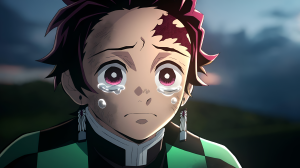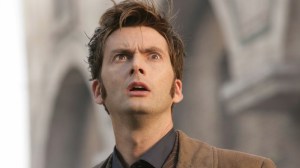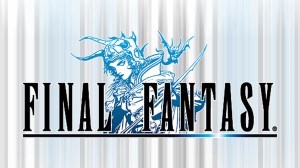Few comics writers have had a bigger impact on the medium in the past 15 years than Robert Kirkman. While his earliest work on surreal series like Battle Pope remain curiosities, the writer managed to develop several hit series very early in his career. Before Kirkman’s time at Marvel Comics had really begun, he was able to leave series like Marvel Zombies and Irredeemable Ant-Man behind in order to focus entirely on creator-owned work. Simply focusing on Invincible and The Walking Dead reveals a writer who understands how to build an audience and distinguish his stories among a crowded field of competition.
Videos by ComicBook.com
Kirkman and Lorenzo De Felici launched Oblivion Song #1, a new series about a post-apocalyptic Philadelphia, no long ago to rave reviews. It’s unclear what sort of staying power the series has, but there is one key element that may predict whether it’s bound to be another Kirkman classic. All of Kirkman’s best series have spun on a similar trick. It’s present in both Invincible and The Walking Dead, but lacking or insufficient in less popular series like Outcast and Thief of Thieves. It’s a twist the occurs early in each series, and it can be defined in the same terms as a great magic trick: The Pledge, The Turn, and The Prestige.
Here is our breakdown of the greatest trick Robert Kirkman ever pulled, and how it will predict the success of Oblivion Song.

The Pledge
The pledge is the setup of the trick, establishing norms and expectation. Kirkman establishes his creator-owned series in the language of genre. Invincible as superhero story, The Walking Dead as zombie tale, Thief of Thieves and Outcast as heist and exorcism narratives, respectively. He’s an observer of genre norms and starts each of these series by making readers feel safe within the narrative. There is usually a good sense of humor and wide array of characters, both offering points of fun worth sticking around for. Yet the core formula remains intact.
As popular as The Walking Dead has become, it’s indisputable that the first several issues are the definition of a safe zombie story. It is what made the pilot so gripping as it adopted the essential elements of a zombie film to television for the first time. The first volume of Invincible is absolutely a pastiche of key elements. Everything from Mark Grayson discovering his powers to the Justice League analogs protecting the world reassure readers that they understand exactly what is happening. Kirkman uses the language and expectations of genre stories to make readers comfortable, setting them up for the next step of the trick.

The Turn
This is the initial twist in the story, but it’s not just any twist. Superhero comic readers have become inoculated to twists in storytelling over the past decade of non-stop events. The revelation that a character is alive or an unexpected someone is behind a conspiracy just doesn’t pack much of a punch anymore. However, when Kirkman delivers the turn in his stories, they exceed the expectations of a standard twist. They are paradigm shifts that radically alter expectations of both the story being told and the genre in which it exists. The word twist can’t encompass what Kirkman does best when he does it well; Kirkman can turn his worlds upside down.
The turn in The Walking Dead comes at the end of the first volume when Shane is shot and killed by Carl. This plays on the core of great zombie stories: the characters, not the zombies. When this moment occurred, it was a mic drop that ensured a growing readership and plenty of readers who couldn’t resist purchasing the second volume. It radically altered the power dynamics of the core group and introduced a new sense of danger as the pressures of society threatened even the innocence of a young boy. The alterations to this turn in the show help clarify how powerful it is. When Carl shoots an already undead Shane, it lacks the same impact. The show emphasizing twists about the zombies, like every living person already being infected, also undermines the focus of this twist.
In Invincible, Kirkman flipped the entire world he built over eight issues upside down when it’s revealed that Invincible‘s father, Omni-Man, is the series’ key villain, and the two destroy a city battling one another. The changes made in this moment could compose a list of their own. Mark Grayson’s family is destroyed, most of the great superheroes on Earth are dead, and the superhero is revealed to be a scion of evil conquerors. In one swift movement, Invincible went from being a standard superhero story to one that was really unlike anything to exist before.

The Prestige
These sorts of shocking twists are only as good as what follows. If a story can’t build on an invigorating change, then reader interest can’t be maintained for long. That’s obviously not the case in the comics of Robert Kirkman though. Invincible recently ended after publishing a total of 144 issues, and The Walking Dead is still being published with no end in sight. The prestige of Robert Kirkman’s twists comes in how he builds a different sort of genre story from an incredible turn.
The Walking Dead remained focused on characters and built Carl and Rick’s relationship into the heart of the series, radically altering their power dynamics and allowing them to grow along the way. Kirkman understood that zombie stories are simultaneously about characters while offering new directions and long-term plots for the characters of his story. Invincible built on its paradigm shift to tell radically different superhero stories and build a space-faring epic. In addition to multiversal crossovers, Mark Grayson also confronted problems of global warming and other issues that superheroes could solve differently. The conflict between Invincible and his father grew and changed to become the longest ongoing battle of the entire series. This is where the series found their grounding and became hits. By the same turn, it’s where series like Outcast and Thief of Thieves have failed to discover a fundamental twist capable of grabbing mass attention. They have offered turns, but none that exceed the sorts of twists readers expect.
Looking at Oblivion Song, the biggest question is what sort of turn the series will offer. The series is pledged to a great post-apocalyptic concept with characters and conflicts that readers recognize. Yet the greatest challenge is still to come when Kirkman will once again subvert his own concept and a well-liked genre. All of the right pieces are in place, and only time will tell if this comics wizard can pull yet another stunning trick in his newest series.








